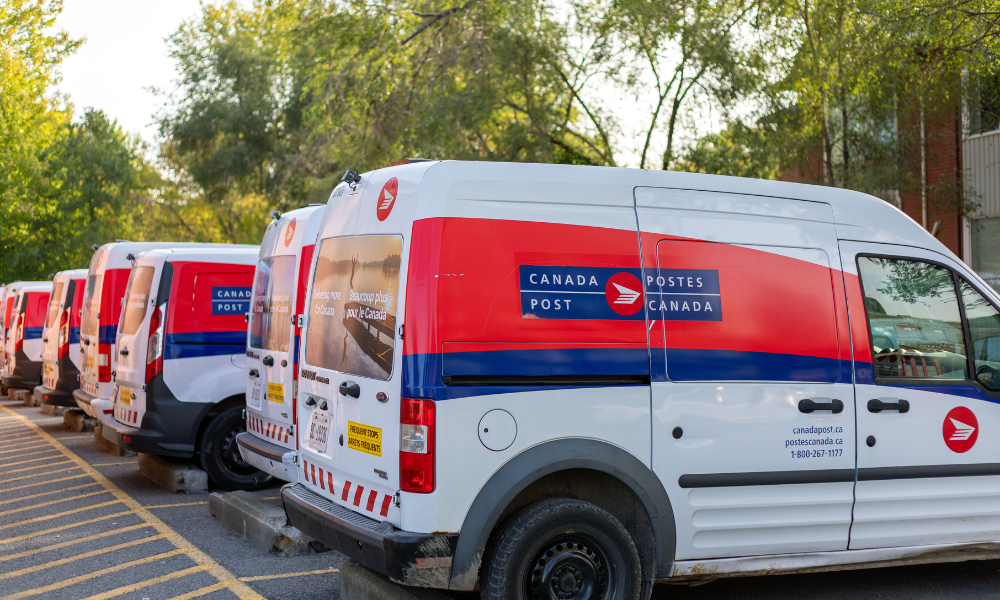Wage disputes and weekend work plans keep Canada Post and postal union far from agreement

Canada Post and the Canadian Union of Postal Workers (CUPW) have made incremental progress during negotiations facilitated by a special mediator, but significant differences persist.
BNN Bloomberg reports that the strike has entered its fifth day and halted mail and parcel deliveries nationwide while pressuring both sides to reach agreements.
Jon Hamilton, a spokesperson for Canada Post, acknowledged minor progress on smaller issues, attributing it to the involvement of the special mediator.
“The special mediator has helped facilitate those discussions. So, we’re going to continue to be at it. We’re committed to getting collective agreements,” Hamilton said.
However, he noted that “there’s still a lot of ground to cover” and confirmed arbitration is not under consideration.
Peter Simpson, director general of the Federal Mediation and Conciliation Service, has played a key role in the negotiations, shuttling between the parties’ conference rooms in Ottawa.
According to union president Jan Simpson, the employer began addressing pressing issues after 12 months of discussions.
“Resolving these issues could pave the way to agreements,” Simpson stated in an update to members, adding that urban unit negotiations were ongoing.
The strike involves approximately 55,000 workers represented by CUPW. They are negotiating two contracts — one for rural and suburban mail carriers and another for urban carriers.
CUPW is pushing for a 24 percent wage increase over four years, while Canada Post has offered 11.5 percent.
Other unresolved issues include job security, weekend parcel delivery, and benefits such as higher short-term disability payouts, ten paid sick days annually, and corporate vehicles for rural carriers.
The union also advocates for full-time employees to handle weekend parcel deliveries, opposing Canada Post’s plan to use contract workers.
Hamilton highlighted the need for a flexible delivery model to provide competitive weekend services, especially as Canada Post's share of the parcel market has plunged from 62 percent pre-pandemic to 29 percent last year.
Negotiations occur amid Canada Post's financial struggles. In the first half of 2024, the Crown corporation reported losses nearing $500m, adding to its $3bn deficit since 2018.
Declining letter mail volumes and rising competition in parcel delivery have exacerbated the crisis. The average household now receives only two letters per week, compared to seven in 2006, a trend the company calls ‘the Great Mail Decline.’
The strike has disrupted deliveries nationwide, with few exceptions such as government benefit cheques. Competitors have experienced increased demand as a result.
Purolator, majority-owned by Canada Post, reported a “double-digit increase in volumes week over week,” while FedEx has implemented a contingency plan to handle higher shipment volumes.
This strike follows previous work stoppages in 2011 and 2018, both of which ended with federal back-to-work legislation.
As the busy holiday season intensifies, the mediator’s involvement and ongoing dialogue remain crucial in determining whether the parties can bridge their differences and avoid prolonged disruptions.



